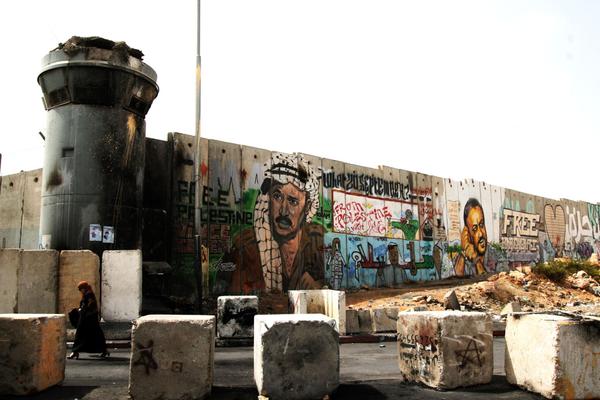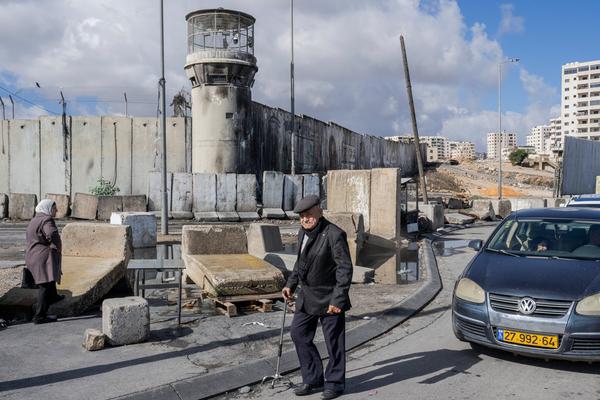



Palestinian History: A Comprehensive Exploration
Introduction
Palestinian history is a tapestry woven with the threads of ancient civilizations, religious significance, colonial struggles, and contemporary geopolitical conflicts. This article delves into the multifaceted history of Palestine, offering a detailed account from its earliest days to the current state of affairs. In this context, it is crucial to understand the ongoing humanitarian crisis in Gaza and the urgent need for donations to support Gaza's children.
Ancient Palestine
Geographical Setting
Palestine, historically known as the Land of Canaan, is situated in the Eastern Mediterranean, bounded by the Mediterranean Sea to the west, the Jordan River to the east, and surrounded by Lebanon, Syria, and Egypt. This strategic location has made it a crossroads of civilizations throughout history.
Early Inhabitants
The earliest known inhabitants of Palestine were the Canaanites, who established city-states around 3000 BCE. These early societies engaged in agriculture, trade, and developed complex religious and social structures.
Biblical Era
Abrahamic Religions
Palestine is significant in the histories of Judaism, Christianity, and Islam. It is the land of biblical patriarchs such as Abraham, Isaac, and Jacob, and the site of ancient cities like Jerusalem, Bethlehem, and Hebron.
Kingdom of Israel and Judah
Around 1000 BCE, the unified Kingdom of Israel was established under kings Saul, David, and Solomon. Following Solomon's reign, the kingdom split into Israel in the north and Judah in the south, each with its distinct political and religious practices.
Classical Antiquity
Roman Rule
In 63 BCE, the Roman General Pompey conquered Palestine, integrating it into the Roman Empire. The Jewish population faced significant challenges, including heavy taxation and the imposition of Roman laws and customs.
Byzantine Period
Following the Roman era, Palestine became part of the Byzantine Empire. This period saw the flourishing of Christianity, with numerous churches and monasteries established, including the Church of the Holy Sepulchre in Jerusalem.
Islamic Conquest and Rule
Early Islamic Period
In 636 CE, Muslim armies defeated the Byzantine forces at the Battle of Yarmouk, bringing Palestine under Islamic rule. The Umayyad Caliphate established its capital in Damascus and developed Jerusalem as an important religious center.
Umayyad and Abbasid Caliphates
The Umayyads built the Dome of the Rock in Jerusalem, a significant Islamic monument. Under the Abbasids, Palestine continued to thrive as a center of learning and culture, although political control fluctuated with various dynasties.
Crusader Period
Crusader States
In 1099, European Crusaders captured Jerusalem, establishing the Kingdom of Jerusalem and other Crusader states. This period was marked by intense conflict between Crusaders and Muslim forces, leading to significant demographic and cultural changes.
Impact on Local Populations
The Crusader period disrupted local life, with many Muslims, Jews, and Eastern Christians experiencing persecution or displacement. The eventual Muslim reconquest under Saladin restored Islamic control by the late 12th century.
Mamluk and Ottoman Eras
Mamluk Dominance
The Mamluks, a military caste, controlled Palestine from the 13th to the 16th centuries. They defended the region against Mongol invasions and fostered economic and cultural development, particularly in cities like Jerusalem, Gaza, and Nablus.
Ottoman Administration
In 1517, the Ottoman Empire annexed Palestine, maintaining control for 400 years. Ottoman rule brought administrative reforms, agricultural development, and increased stability, although local autonomy fluctuated.
19th Century Nationalism
Rise of Arab Nationalism
The 19th century saw the rise of Arab nationalism as local populations sought greater autonomy and resisted Ottoman centralization. This period also witnessed increasing European interest in the region, particularly by Britain and France.
Zionist Movement
Simultaneously, the Zionist movement emerged, advocating for the establishment of a Jewish homeland in Palestine. Jewish immigration increased, leading to tensions with the Arab population over land and political control.
British Mandate
Balfour Declaration
In 1917, the Balfour Declaration expressed British support for a "national home for the Jewish people" in Palestine, exacerbating tensions between Jews and Arabs. The subsequent British Mandate (1920-1948) saw increased immigration and escalating conflicts.
Arab Revolts
Arab opposition to British policies and Jewish immigration culminated in widespread revolts during the 1920s and 1930s. These uprisings were met with harsh British crackdowns, further polarizing the communities.
1948 Arab-Israeli War
Nakba (Catastrophe)
The 1948 war, following the UN partition plan, led to the creation of Israel and the displacement of hundreds of thousands of Palestinians, known as the Nakba or "Catastrophe." This event remains a pivotal moment in Palestinian history and identity.
Establishment of Israel
On May 14, 1948, the State of Israel was declared, leading to the first Arab-Israeli war. Neighboring Arab states invaded, but Israel emerged victorious, expanding its territory beyond the UN-designated borders.
Post-1948 Developments
Palestinian Refugees
The 1948 war created a massive Palestinian refugee crisis, with many fleeing to neighboring countries or being internally displaced. Refugee camps became semi-permanent fixtures, with generations growing up in exile.
Rise of the PLO
In 1964, the Palestine Liberation Organization (PLO) was founded to represent Palestinian interests and fight for statehood. Under leaders like Yasser Arafat, the PLO became a significant political and military force.
1967 Six-Day War
Israeli Occupation
The Six-Day War in 1967 resulted in Israel occupying the West Bank, Gaza Strip, East Jerusalem, and the Golan Heights. This occupation continues to be a source of conflict and controversy.
UN Resolution 242
Following the war, UN Resolution 242 called for the "withdrawal of Israeli armed forces from territories occupied in the recent conflict" and the recognition of every state's right to live in peace. The resolution remains a cornerstone of peace negotiations.
Intifadas
First Intifada
The First Intifada (1987-1993) was a Palestinian uprising against Israeli occupation, characterized by protests, civil disobedience, and violent clashes. It drew international attention to the Palestinian cause and led to the Oslo Accords.
Second Intifada
The Second Intifada (2000-2005) erupted after failed peace talks and was marked by more intense violence, including suicide bombings and military operations. It significantly impacted Israeli-Palestinian relations and peace efforts.
Oslo Accords
Peace Process
The Oslo Accords (1993) initiated a peace process aimed at achieving a two-state solution. The agreements granted limited autonomy to the Palestinian Authority (PA) in parts of the West Bank and Gaza, though final status issues remain unresolved.
Establishment of the Palestinian Authority
The PA was established to govern Palestinian territories, leading to hopes for a future independent state. However, continued Israeli settlement expansion and internal Palestinian political divisions have stymied progress.
21st Century Conflicts
Gaza Wars
The Gaza Strip has been the site of multiple conflicts, notably in 2008-09, 2012, 2014, and more recently in 2021. These wars have resulted in significant casualties and destruction, exacerbating the humanitarian crisis in the region.
West Bank Settlements
Israeli settlement expansion in the West Bank continues to be a major point of contention. These settlements are considered illegal under international law, though Israel disputes this. The expansion complicates peace negotiations and the feasibility of a two-state solution.
Current Issues
Humanitarian Crises
The humanitarian situation in Palestinian territories, particularly in Gaza, is dire. As of recent reports, over 2 million people are affected by severe shortages of food, water, and medical supplies. Blockades, military operations, and political strife contribute to widespread poverty, limited access to healthcare, and insufficient infrastructure. Your donations to Gaza can make a significant impact by providing essential aid and support to Gaza's children.
International Diplomacy
Palestine's status on the international stage is complex. While over 130 countries recognize it as a state, significant powers, including the United States and Israel, do not. Diplomatic efforts continue to focus on achieving a lasting peace agreement. Meanwhile, humanitarian aid remains a critical lifeline for the people of Gaza. By choosing to donate to Gaza, you are supporting vital relief efforts that bring hope and sustenance to those in need.
Cultural Heritage
Literature and Art
Palestinian culture is rich with artistic expressions, from traditional crafts to contemporary literature and visual arts. Authors like Mahmoud Darwish and artists like Suleiman Mansour have made significant contributions to the cultural identity.
Festivals and Traditions
Palestinian festivals, such as Eid al-Fitr and Eid al-Adha, as well as traditional practices like Dabke dance, are integral to the cultural fabric. These traditions are celebrated with enthusiasm and serve to reinforce community bonds.
Economic Challenges
Impact of Blockades
The economic impact of blockades on Gaza and restrictions in the West Bank has been profound. Limited movement of goods and people stifles economic growth, leading to high unemployment and dependency on international aid.
Economic Initiatives
Despite challenges, there are ongoing efforts to stimulate the Palestinian economy. Initiatives include small business support, agricultural development, and tech startups aimed at creating job opportunities and fostering economic resilience.
Future Prospects
Peace Proposals
Various peace proposals have been put forward over the decades, including the Camp David Accords, the Road Map for Peace, and recent plans like the Trump Administration’s "Deal of the Century." While none have yet resolved the conflict, they continue to shape diplomatic efforts.
Role of International Community
The international community plays a crucial role in mediating peace efforts and providing humanitarian aid. Organizations like the UN and countries such as Norway and Qatar often facilitate negotiations and support development projects.
FAQs
What is the significance of the Balfour Declaration?
The Balfour Declaration of 1917 was a statement by Britain supporting the establishment of a "national home for the Jewish people" in Palestine. It is significant because it laid the groundwork for increased Jewish immigration to Palestine and heightened tensions with the Arab population.
How did the Nakba affect Palestinians?
The Nakba, or "Catastrophe," in 1948 resulted in the displacement of over 700,000 Palestinians. It led to the creation of a vast Palestinian diaspora and remains a central event in Palestinian collective memory and identity.
What were the Oslo Accords?
The Oslo Accords were a series of agreements between Israel and the PLO in the 1990s aimed at achieving a peace settlement and establishing a framework for Palestinian self-governance. They marked the first direct negotiations between the two sides.
Why are Israeli settlements controversial?
Israeli settlements in the West Bank are controversial because they are built on land that Palestinians claim for a future state. They are considered illegal under international law, though Israel disputes this, and their expansion complicates peace efforts.
What is the status of Jerusalem in the conflict?
Jerusalem is a core issue in the Israeli-Palestinian conflict. Both Israelis and Palestinians claim it as their capital. Its status remains one of the most sensitive and complex issues in peace negotiations.
How has the international community responded to the conflict?
The international community has been involved in various ways, from mediating peace talks to providing humanitarian aid. While some countries recognize Palestine as a state, others, including major powers like the United States, do not, reflecting the geopolitical complexities of the conflict.
Conclusion
Palestinian history is a narrative of resilience and struggle, marked by periods of cultural flourishing and profound adversity. Understanding this history is crucial for appreciating the current dynamics and the ongoing quest for peace and justice in the region. As the story of Palestine continues to unfold, it remains a testament to the enduring spirit of its people and their unwavering hope for a better future. By donating to Gaza, you are contributing to this hope and helping to provide essential aid to Gaza's children. Your support is invaluable in alleviating their suffering and ensuring they have a chance at a brighter future.
💔 Donate to Support Gaza's Children
Your donation can make a significant difference in the lives of children affected by the crisis in Gaza. Donate now via Bitcoin or Stripe to provide essential aid and support.
Donate Now